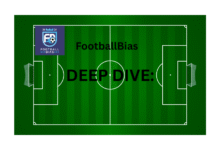
Being a captain has never been about wearing a piece of fabric ,it’s about responsibility. The armband doesn’t create a leader, it simply identifies one. A real captain brings direction when a team starts to drift. He’s the voice that cuts through noise and the standard others follow.
From Maldini’s calm control to Terry’s aggression, from Keane’s intensity to Ronaldo’s drive, the great captains didn’t lead because they were told to. They led because everyone around them trusted their mentality. When the pressure increased, they didn’t look for someone else to fix it, they became that someone.
Every strong captain starts with mentality. It’s the edge that refuses to fade, the refusal to accept “good enough.” Roy Keane built his reputation on it, demanding the same focus in training that he did at Old Trafford on matchdays. John Terry carried that same fire, setting the tone for Chelsea’s dominance by throwing himself into every tackle like it was a final.
Sergio Ramos led through defiance, always believing the next minute could still change the game and he was often right. And Cristiano Ronaldo remains perhaps the clearest modern example, obsessed with standards, driving teammates forward through sheer intensity. That mindset spreads quickly. When your captain refuses to drop his level, everyone else tends to rise to meet it.
Not every captain needs to shout, but every great one knows how to make people listen. Charisma isn’t about volume, it’s about presence. Didier Drogba could lift a team, and a country with his words, this was exemplified in 2005. After Ivory Coast qualified for the 2006 World Cup, the country was in the middle of a civil war that had already lasted five years. In the dressing room, surrounded by cameras, Drogba took the microphone and made an emotional plea, asking both sides of the war to lay down their weapons and unite for the country’s future. It wasn’t a rehearsed speech or a political move. It was a captain using his platform to speak when others couldn’t. Within weeks, a ceasefire was agreed, and the national team’s success became a symbol of unity.
That moment proved something about leadership that no trophy can show, real captains don’t just guide teams, they bring people together when division feels inevitable. Maldini didn’t need speeches; his calm authority spoke for him. Beckenbauer meanwhile led with certainty, the kind that settled everyone around him.
Cristiano Ronaldo brings a different kind of charisma, intensity. He commands attention by the way he moves, reacts, and expects. The same applies to players like Steven Gerrard, who didn’t speak often, but when he did, it mattered. Charisma in football isn’t performance, it’s influence. A great captain doesn’t always talk more than others, he just makes every word count.
A captain’s credibility depends on what he does when things go wrong. The best ones take responsibility instead of pointing fingers. Franco Baresi and Paolo Maldini built that culture at Milan, standards first, without excuses. They owned results, good or bad, and teammates followed that lead. Modern examples like Jordan Henderson show the same principle. He speaks up, takes blame publicly, and defends his squad when needed. That kind of leadership builds trust, the quiet respect that keeps a dressing room united. Real captains protect the group when it matters.
In today’s game, captaincy isn’t just about authority, it’s about understanding people. Every dressing room is different, and the best captains know how to read it. Martin Ødegaard leads Arsenal with coolness, composure and respect, showing that quiet leadership can be just as effective as confrontation. Ramos and Ronaldo evolved over time, shifting constantly from fiery motivators to steady figures teammates could lean on. Great captains adjust their tone, timing, and temperament. They know when to demand more and when to give support. Emotional intelligence is what keeps a leader relevant, it turns command into connection.
The simplest form of leadership is doing the work, leading by example. Messi rarely talks, but his preparation and consistency make him impossible to ignore. Maldini’s professionalism, Terry’s commitment, and Ronaldo’s discipline all set standards higher than words ever could.
A captain’s habits can shape the team’s culture. When the leader trains hardest, recovers properly, and stays focused, others follow. Leading by example doesn’t make noise, but it builds belief. And in football, that’s often what wins the dressing room before it wins the match.
Captaincy isn’t about ceremony, it’s about consistency. The best captains from Maldini and Baresi to Terry, Ramos, and Ronaldo didn’t just lead because of reputation but because their teams trust them to hold the line when it matters most.
Every great side needs that figure who can absorb pressure, demand standards, and keep the belief alive when the rest start to fade. Some lead through fire, others through calm, but the end goal is the same, direction, unity, and conviction. Captaincy lives in actions, not gestures. The great ones don’t talk about leading, they just do it.





